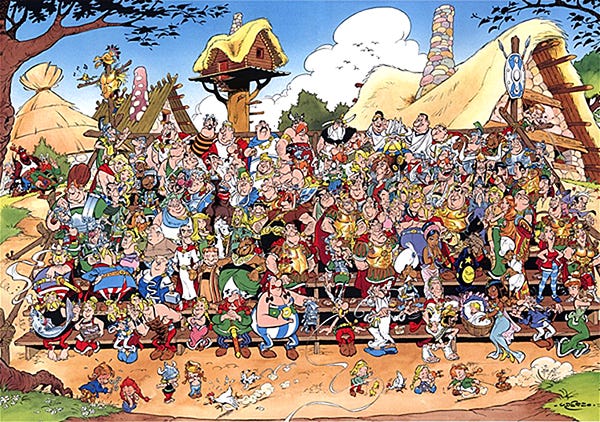Kyborg 17: Sources of the Self 1
Many years ago, I read Steven Pinker’s “How the Mind Works.” This is what he had to say about the ‘how’:
In Pinker’s view, we are thinking machines that evolved to solve problems our environment threw at us. Or rather, the ones who solved those problems went forth and multiplied while those who didn’t are six feet under.
The machine is the ruling idea of out times. Are we machines and nothing but machines? This is one of the central questions of the modern era.
Machines have eaten the world. They take us to the bottom of the ocean and the depths of space. If we ever leave this planet in large numbers and settle on Mars, we will do so because we have machines that help us brave the heavens.
Our terrestrial life is fundamentally intertwined with other living beings, but our extra-terrestrial life - if and when that happens - will be symbiosis with machines.
The rule of machines is almost complete, with ‘thinking machines’ solving the puzzle about how machines and mechanisms can explain everything. And yet, there remains one exception, like that tiny village in Gaul holding out against Julius Caesar’s Roman empire.
That’s the problem of subjectivity and consciousness, of sentience more broadly. Why is there anything like consciousness at all in a world of whirling matter? Even Pinker has his misgivings:
Subjectivity and its seat, i.e., the Subject, remain a mystery to the world of matter. But that doesn’t mean that subjectivity remains underdeveloped even as our mechanical capacities increase by leaps and bounds. The truth is the exact opposite: the modern era is also one of great advances in the representation and exploration of subjectivity too. It’s not science that has explored the sense of inwardness. That’s been the province of the arts - especially the novel.
Artistic (i.e., subjective) and mechanical (objective) explorations have always worked hand in hand. The development of perspective and 3D geometry revolutionized painting and more recently, special effects and computer graphics are central to the movie business. However, there’s a clear hierarchy of prestige and power - science and technology are higher up than the arts. It’s a deep error to think that lack of a scientific theory of consciousness is evidence that we don’t understand consciousness at all.
The experience of an inner realm that’s unique to me and opaque to everyone else is itself a modern ‘discovery.’ Or as Charles Taylor says:
The modern era then has two powerful, if contradictory intuitions:
A world of machines and mechanisms that give us unprecedented control.
A world of increasingly more autonomous and free subjects who explore ever new territories - both real and imaginary.
Modern culture worships both intuitions at once, selling us new experiences every day. Indeed, there’s a paradoxical sense in which machines increase the value of experience - as hard labor, and now increasingly, white collar labor, is outsourced to machines, we are left with nothing else to do besides seek new experiences. Which can have a good side, if those experiences lean on the side of creativity or a bad side if they lead to an opioid addiction.
One of Kant’s challenges is to reconcile these intuitions, of the possibility of an autonomous subject in a world of objects, but before we get to Kant, I will use Charles Taylor to give us a taste of the autonomous subject and the self that houses it. Like the machine, this self intrudes in many a domain outside its natural home, and by studying the archaeology of the self we are are likely to unearth ideas and intuitions that pass by the purely scientific investigator.







